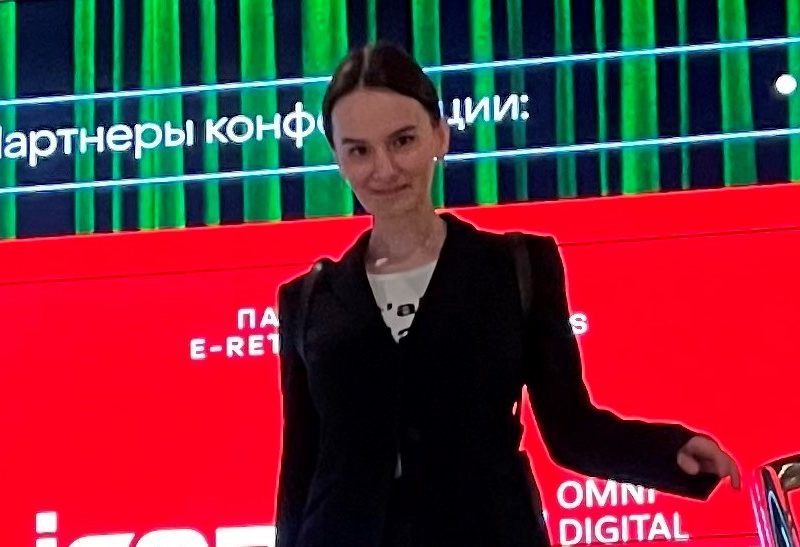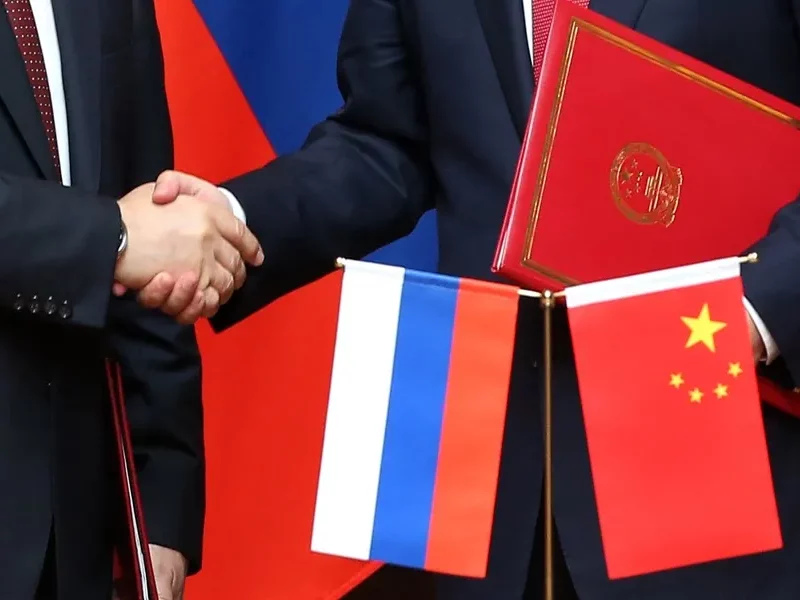Business negotiations at the conclusion of M&A transactions are quite complicated. In order for business negotiations during mergers and acquisitions of companies to be successful, it is recommended to enlist the support of a team of independent experts. There are situations when a conflict of interest arises before the start of formal business negotiations, when representatives of companies will only consider the possibility of a merger.
At the same time, the following global issues are considered:
- Who will be the winner at the end of the transaction?
- What are the risks and consequences of disrupting business negotiations?
- How will the management of the combined company take place as a result of the merger? Who’s in charge?
- Does the M&A transaction comply with legal norms?
- How to stay in a winning position when merging?
These are vital issues for both sides of the deal. Everyone, of course, will try to “pull the blanket” on themselves. In this case, the task of independent consultants is to conduct business negotiations and resolve conflicts so that both sides of the transaction are satisfied.
Merger business negotiations and the role of independent experts

You need to understand that the process of conducting such transactions is far from fast! It happens that negotiations are delayed. The parties spend money and time, as a result of which tension increases and opportunities for the realization of a synergistic effect disappear.
Of course everyone wants to complete the deal. The problem is that it is not so easy to agree on the terms. Company executives sometimes cannot agree purely for subjective reasons. In order to conduct negotiations as impartially and objectively as possible, independent experts are involved in the negotiations already at the integration stage.
Specialists do NOT negotiate instead of management. They express an unbiased and objective opinion to the heads of companies and help to conduct business negotiations competently.
It cannot be said that companies will not be able to agree without independent experts. However, their involvement significantly simplifies the negotiation process and shortens the terms of the transaction.
In our opinion, it is better to hire one independent team. If each side hires its own experts, then the output will be the same disputes. Since the very fact of the “independence” of experts ceases to exist. After all, every specialist works on his side.
As a result, it turns out that not only managers, but also specialists who protect the interests of their employer are now arguing during negotiations.
While one team of investment consultants does not take sides, but acts in the interests of both parties. It analyzes in detail the aspects of the proposed transaction carefully and accurately, giving an unbiased opinion regarding its conclusion.
One of the sensitive points when making mergers and acquisitions is that the parties will have to give access to confidential information. If the merger does not take place, the prospective partners will become informed and dangerous competitors.
In such cases, it would be advisable to involve an independent team. It will have access to the information of all parties and will be able to safely provide a complete picture of the benefits of the merger until the parties are burdened with obligations or disclose confidential information to each other.
In simple words, the parties will have an idea of the expediency of making a deal at the earliest stage of negotiations.
How are business negotiations conducted during mergers and acquisitions?

Each of the parties has the right to form a working group for negotiations. The circle of persons who will have access to information for interaction with the counterparty is determined. Also, it is worth determining what kind of information each individual will be given access to.
Provisions on negotiations and an Agreement that provides for the basic requirements, rights and obligations of the parties are being developed. This stage is preparatory.
The preparatory stage of business negotiations is recognized by Russian legislation. The parties have an obligation to conduct business negotiations in good faith during the merger. They are responsible for the violation. For example, dishonesty of actions is directly reflected in Article 431.1 of the Civil Code of the Russian Federation.
Also, the Supreme Court of the Russian Federation in the resolution (paragraphs 19-21) of 03/24/2016 No. 7 “On the application by courts of certain Provisions of the Civil Code of the Russian Federation on liability for breach of obligations”, clarified some issues of bringing to responsibility for unfair negotiation.
Verification of the company as an important stage of negotiations during mergers and acquisitions

To go further, it is necessary to conduct Due Diligence. A comprehensive audit of the company gives a clear understanding of the state of the company and facilitates negotiations. As the degree of trust increases.
As a rule, it is checked:
- accounting (financial) statements of the company;
- quality of operations;
- legitimacy (legal risks);
- the correctness of the structuring of the transaction (transaction documentation).
Emerging issues:
- Does the ownership and management of the company being purchased coincide with the strategic interests of shareholders?
- What is the real value of the company being purchased?
- Based on its current financial condition, is it possible to purchase the company being audited?
A more detailed study of the company being purchased should provide answers to such questions:
- Are there signs of insolvency or the presence of embezzlement and abuse in the financial statements?
- Based on the results of the analysis of the operations of the audited company, have there been signs of insufficiency and/or inefficiency of internal control?
- Is there a potential threat of litigation that may arise after the takeover?
When a company is taken over, Due Diligence is carried out in relation to the seller company. The buyer must notify the second party of the transaction about what information and to what extent should be disclosed. To do this, a corresponding request is sent to the seller. It is recommended to send it as early as possible.
In the case of a merger of companies, Due Diligence is carried out mutually. After all, companies need to learn about each other’s real state of affairs before merging.
Thus, Due Diligence is an integral part of negotiations. Since they are based on facts. Without verification, it is impractical to discuss the possibility of a merger, since the parties do not see the full picture.
Business negotiations: ensuring confidentiality and disclosure of information

When conducting mergers and acquisitions, it is very important to prevent information leakage. Third parties should NOT receive insider information in any way. After all, this will entail consequences in the form of disruption of the transaction, illegal fraud on the stock exchange, dismissal of key employees, etc.
In order to avoid leakage, it is necessary to develop, agree and conclude a Confidentiality Agreement (NDA) between the parties and the circle of persons who will have access to confidential information.
Next, it is necessary to determine the composition of the information that will be considered disclosed. It is necessary to demand the most detailed disclosure of all possible problems at the stage of the approval process.
The parties may disagree with the approaches to disclosure of information. Therefore, it will be necessary to allocate enough time for processing documents and determining a common position on disclosure of information.
Business negotiations — the process of conducting

The complexity of negotiations directly depends on the complexity of the planned financial transaction. These operations include mergers and acquisitions.
During the meeting of senior managers, a proposal is made on the structure of the proposal and a scheme of interaction is proposed. It is possible that the parties will immediately come to an agreement. But more often it happens that it is difficult to agree or a conflict arises.
At the same time, if there is a takeover, it is better to continue negotiations or to pause than to resort to an unfriendly takeover. Since such actions will entail a complicated absorption process and increase its price.
A senior management meeting is being held to consider merger or acquisition proposals. At the same time, the Board of Directors should be informed. Large companies have an action plan and prepared procedures. Therefore, the reaction to merger or acquisition proposals, in most cases, is quick and decisive.
If the response to the merger/acquisition proposal is positive, then business negotiations continue. A negotiating group with a certain composition starts working.
At the first discussion of the M&A transaction, the Chairman of the Management Board represents the head of the negotiating group to the opposite party.
Further , the negotiations determine:
- price and conditions;
- transaction structure;
- guarantee system;
- risks and opportunities of synergistic effect;
- management system;
- relationship of the parties;
- how will conflicts of interest be resolved, if they arise;
- business plan of the combined company;
- regulations, profit margins, etc.
This is not the end of business negotiations. Moreover, they are held throughout the entire transaction, right up to its closure.
At the final stage of negotiations, when everything seems to have already been agreed, new questions arise. It is almost impossible to solve them without infringing on the interests of one of the parties.
For example, the separation of the cost of the EXPECTED effects and the actually ESTIMATED effects from the combination.
In simple terms: we go for the touchdown before we catch the pass
This problem is solved by joint efforts of companies through mutual concessions. Invited consultants cannot take sides, but act as a referee.
At the final stage of negotiations, a team of experts helps to reach an agreement and minimizes the risk of a deal failure. In the previous stages, specialists performed auxiliary work:
- analyzed the feasibility of the transaction;
- prepared an economic justification;
- the sources of synergistic effects have been identified.
Now, they answer specific questions that arise at the final stage of merger or acquisition negotiations, for example:
- How will the transaction price change if the growth rate and profit margins continue to grow?
- What consequences will come, and who is responsible for them if there is a negative synergistic effect?
- How will the excess profit be divided?
The questions are quite “slippery”, since in this case we are talking about the future. But nevertheless, each of the parties will ask similar questions. The task of experts is to provide all the nuances and propose a solution that will meet the needs of each party to the transaction.
Why does the method of attracting experts to merger and acquisition negotiations work great?

The method of attracting external consultants to merger negotiations is successfully used in developed countries. If you look at the context of emerging markets, it can be even more useful. After all, companies have to make decisions without reliable financial information, in conditions of rapid changes at the level of legislation, which is constantly being improved. In addition, there is interaction with partners who are not always guided by generally accepted principles in business.
The following obstacles may arise on the way of merging companies:
Complex organizational and legal structure of companies
Russia is characterized by the presence of a large number of assets in the company. It can consist of a huge number of legal entities. Therefore, the question that potential partners face arises, which assets are we talking about in the merger?
The merger makes it possible to revise the structure when combining similar assets. A new organization can be created with more efficient management and a clear structure for external investors. In this case, it is better to leave non-core assets outside the transaction.
Accordingly, resources will be required to verify assets and divide them into profile and non-core ones. After verification, it is possible to determine which assets will be discussed in the negotiations. This will avoid misunderstandings and unnecessary questions. The prospects of the deal will be more clearly visible.
Opacity and poor quality of financial information
Financial reports of companies are a reliable source of information in developed markets. However, the situation is different in the developing Russian market. Sometimes, even non-closed joint-stock companies are owned by one or more major shareholders.
It is clear that such companies do not seek to publicly disclose financial information. Therefore, future partners in the Russian market treat each other with distrust. When a party submits documents, they are carefully studied and checked for the realism of the indicators indicated in them.
Here, the role of independent experts is to generate reports based on confidential information without disclosing data to partners. But the most important thing is to check the information for compliance with the real state of affairs in the company. The team can do this independently, if resources are available, or involve external auditors.
Deviations of the initial data from the actual data may be the basis for bargaining in negotiations. This may relate to a change in the price or terms of the transaction.
Economic growth
Rapid economic changes in certain sectors of the economy affect decision-making in mergers and acquisitions. Past financial information plays a less important role than forecasts for the future. Therefore, understanding the factors of business development plays an extensive role.
Cost structure analysis and its accuracy affect the amount of projected costs.
Such an in-depth analysis of prospects and trends opens up more opportunities for negotiations.
Lack of information about comparable transactions.
When the financial terms of a transaction are discussed and determined, data on similar transactions made in the past are evaluated. But there is a problem. In Russia, such information is not always available.
The business value is estimated based on the analysis of confidential information. This is where the difficulties arise. Theoretically, without an objective assessment of experts, aspects of the transaction can cause disputes even after approval. As a result, negotiations and the very implementation of the transaction are delayed.
There is a logical sense in attracting independent consultants who will conduct an objective assessment and give a full report to both parties. This will avoid re-discussion of issues on which appropriate decisions have already been taken.
What influences the outcome of business negotiations on mergers and acquisitions?

The outcome of merger or acquisition negotiations may be influenced by factors that cannot always be predicted. For example:
- receipt of a better offer from another company;
- the emergence of lawsuits;
- improving asset quality and value;
- other factors.
It’s impossible to predict everything. However, the positive outcome of the negotiations largely depends on:
- Thorough preparatory work on all aspects of the transaction.
- Organization of negotiations.
- Preparation of the negotiation process.
- The quality of negotiations.
Thus, business negotiations in mergers and acquisitions are not just about communication. Words must be confirmed by facts, and they arise as a result of thorough checks. M&A transactions are large by nature. Biased asset valuation and trust-based work can cost a company millions of dollars. Therefore, it makes sense to involve independent experts in the negotiations, who will help to come to an agreement faster and minimize possible risks.
Разрабатываем Стратегии для собственников бизнеса в целях оптимизации группы компаний, решения нестандартных задач и продажи активов. Оказываем услуги по сопровождению сделок M&A, управлению непрофильными активами и проектами в целом.













